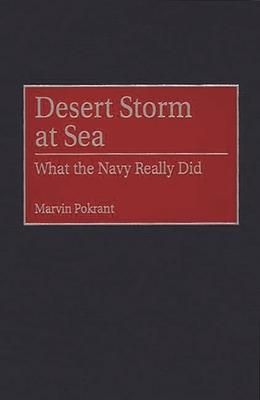Desert Storm was the largest naval operation since World War II. Although naval forces did not play the central role, they fulfilled an important function throughout the operation, facing many formidable challenges and considerable risk. This book provides a close examination of the problems encountered by the Navy, both in the military situation and in dealing with the other services, and the decisions made to address these issues. While interservice rivalries sometimes intruded at higher levels, jointness at the tactical level often led to effective combined-arms operations.
Despite the information revolution and improvements in technology, the Fog of War still obscured the battlefield and affected nearly all decisions. This study offers page-turning action, such as SEAL activity and combat search and rescue missions, as well as the exciting and dangerous surface operations that gained sea control of the northern Persian Gulf. Using primary sources such as interviews and many documents cleared only recently for public release, the author covers the relations between General Schwarzkopf and Vice Admirals Mauz and Arthur; the major contribution of Tomahawk cruise missiles to the first wave of attacks on Baghdad; the controversial use of aircraft carriers in the Gulf; as well as the Navy's possible role in the event of an amphibious assault into Kuwait. Those preparing to fight in future naval actions will learn much from this detailed analysis.
Book
Desert Storm at Sea: What the Navy Really Did
(Write a Review)
Hardcover
$105.56
Desert Storm was the largest naval operation since World War II. Although naval forces did not play the central role, they fulfilled an important function throughout the operation, facing many formidable challenges and considerable risk. This book provides a close examination of the problems encountered by the Navy, both in the military situation and in dealing with the other services, and the decisions made to address these issues. While interservice rivalries sometimes intruded at higher levels, jointness at the tactical level often led to effective combined-arms operations.
Despite the information revolution and improvements in technology, the Fog of War still obscured the battlefield and affected nearly all decisions. This study offers page-turning action, such as SEAL activity and combat search and rescue missions, as well as the exciting and dangerous surface operations that gained sea control of the northern Persian Gulf. Using primary sources such as interviews and many documents cleared only recently for public release, the author covers the relations between General Schwarzkopf and Vice Admirals Mauz and Arthur; the major contribution of Tomahawk cruise missiles to the first wave of attacks on Baghdad; the controversial use of aircraft carriers in the Gulf; as well as the Navy's possible role in the event of an amphibious assault into Kuwait. Those preparing to fight in future naval actions will learn much from this detailed analysis.Hardcover
$105.56